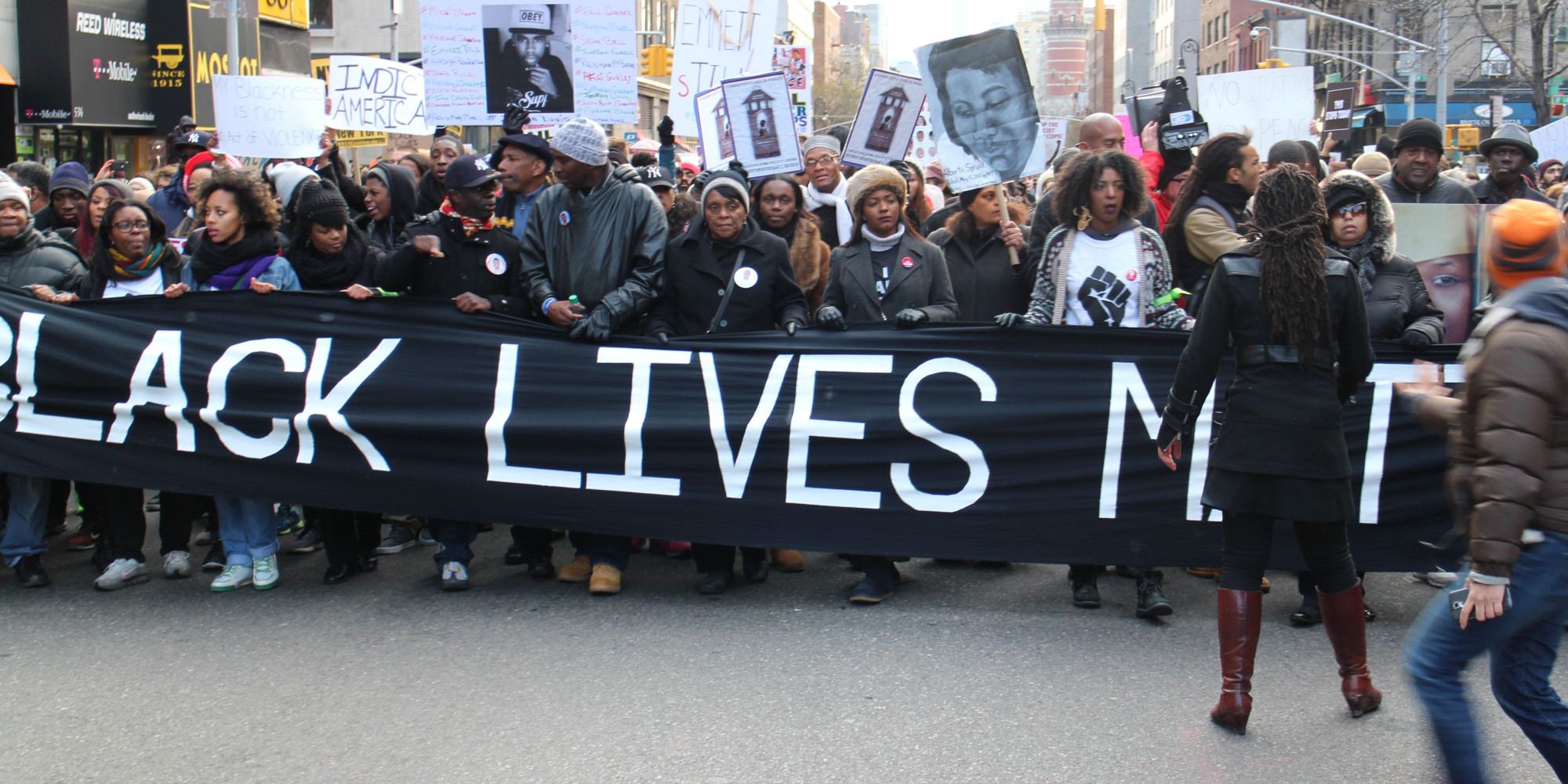
Protests following the Eric Garner grand jury decision, New York City, December 2014. Mustafa Caglayan/Anadolu Agency/Getty Images.
One of the memorably uncomfortable moments of life was reading for the first time Peggy McIntosh’s 1988 essay, “White Privilege: Unpacking the Invisible Backpack”. It painted a vivid picture of an important part of what my social location means in daily life.
Even though it’s still discomforting, I consider coming to terms with my white privilege to be a modern day example of what Jesus said: “You will know the truth, and the truth will make you free” (John 8:32).
I wrote about social location and how identifying my social location changed my life for the last two weeks. This is my third article about faith and identity, in the wake of the Charleston massacre and learning the shooter was a member of an ELCA congregation. Feel free to check out the first two.
So what is “white privilege”? And what does an invisible backpack have to do with anything? As people with darker skin are disadvantaged by society, so are people with lighter skin given advantages by society. White privilege includes all those unearned, unspoken advantages. This is what McIntosh wrote:
white privilege [is] an invisible package of unearned assets that I can count on cashing in each day, but about which I was ‘meant’ to remain oblivious.
Here’s what it means that these so-called “privileges” are unearned. Unearned means, simply by having lighter skin, a person gets them. Take me for example. I’m not at the top of the heap of society. I’m not bigotted. I did not invent racism. To my knowledge, my family (going back generations) never owned slaves. In fact, I have friends who are people of color. I pray and work for racial equity. And yet, I inherited white privilege.
When Jesus said, “The truth will make you free,” he was speaking to people in denial. People who did not want to know the truth. Why might people not want to know the truth about white privilege? McIntosh wrote about this too:
Describing white privilege makes one newly accountable. …[O]ne who writes about having white privilege must ask, “having described it, what will I do to lessen or end it?”
McIntosh offered day-to-day examples of white privilege, which is what really brought it home for me. I’ll save that for next week. Or you can read her essay yourself.
Peace, PC

Comments are closed, but trackbacks and pingbacks are open.